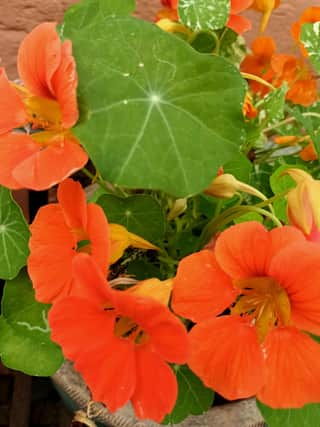COLUMN: Resident gardener Kate Giffen shows how to keep our growing garden safe from pests with companion planting!


Welcome to July. How is your garden growing? Any tomatoes, peas or beans yet? July is an exciting month when you could find yourself busy harvesting, planting, sowing, and maintaining your garden.
Part of this might involve rotating crops around your beds to make the most of your space and to maintain your soil health.
Advertisement
Hide AdAdvertisement
Hide AdPotatoes, for example, take a lot of nutrients from the soil, so once you have harvested some, you will want replant the space with a crop that doesn’t further deplete nutrients out of the ground.
Leeks, cabbage, kale, squash, pumpkins and sweetcorn are all good options.
Once your broad beans are over, cut them down to the base but don’t dig up entirely. Broad beans will fix the nitrogen in the soil which will be perfect to replant with a leafy crop such as kale.
As lovely as July is, we do start to see quite a lot of the pesky garden visitors such as blackfly and slugs and snails descending on our garden. For this, and other reasons, you might want to think about companion planting.
Advertisement
Hide AdAdvertisement
Hide AdCompanion planting is basically mindful planting of plants and flowers for mutual benefit.
Some crops just don’t like being next to other ones. This could be because they are competing for resources (parsnips and carrots) or can be due to something called their allelopathic properties. Beans for example, give off a chemical that inhibits the growth of most of the onion family, so best to avoid planting beans next to your onions, leeks, garlic or chives.
Conversely, beans and carrots make super bedfellows. Carrots attract ladybirds for example, and can help control any aphids on your beans. Also, beans are nitrogen giving plants and carrots love nitorgen. Another one to mention is basil. Basil is a great fly deterrent and can be grown happily in your flower bed or in pots.
Also worth a mention, is borage. Borage is dead easy to grow from seed and brings so much to your garden. Not only do the bees love it and the flowers are edible and perfect for decorating salads and Pimm’s, but also, borage is known to deter the tomato hornworm and the asparagus beetle.
Advertisement
Hide AdAdvertisement
Hide AdAnother gorgeous plant to consider is nasturtiums. These re-annuals but again, are super easy to grow from seed, preferring poorer soil and they self-seed easily.
They are colourful, come in loads of different varieties and have edible flowers and leaves – but pregnant women and anyone with kidney disease should avoid nasturtiums entirely.
Nasturtiums are also known as a ‘sacrificial crop’ in that when planted, can save your cabbages by attracting the cabbage moths and aphids away from your prized vegetables.
Again, if you do several sowings, the flowers will bloom for you all summer long and way into autumn too.
I hope this has given you some food for thought this month.
Happy growing – See you in August!